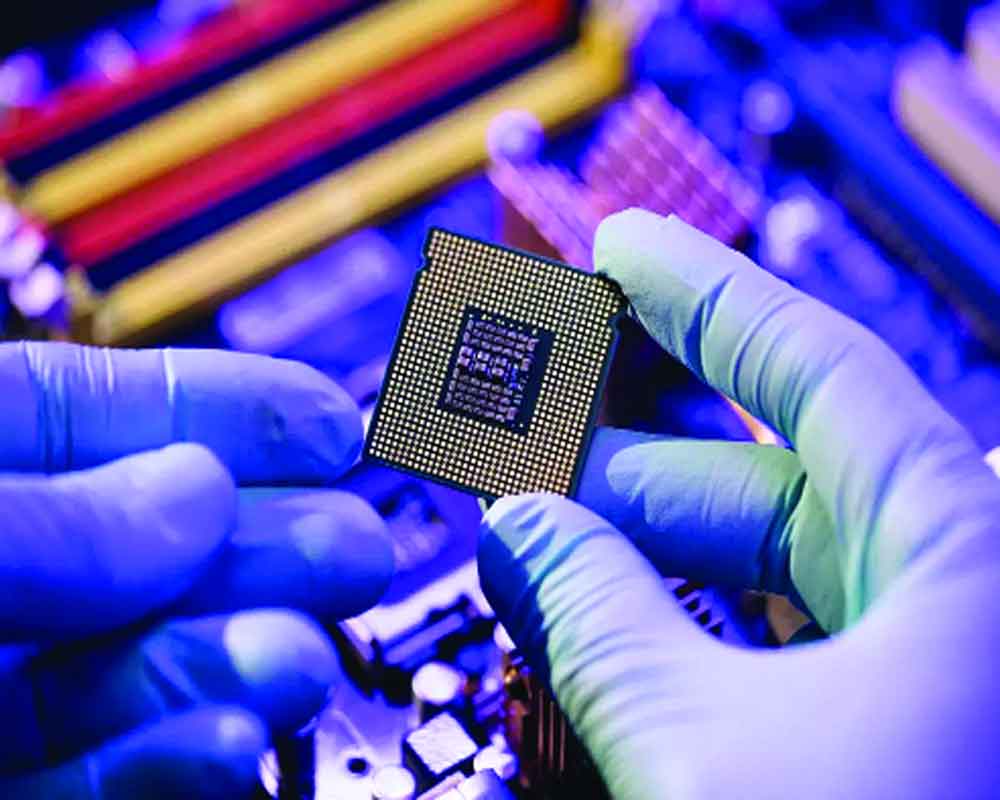India's semiconductor quest amid geopolitical dynamics

Semiconductor chips are becoming critical assets in global geopolitics, likened to the new oil. Dominated by US, Taiwan, South Korea, Japan, and the Netherlands, the industry holds potential for trillions of dollars by 2030. India aims to build semiconductor capabilities to advance in global power hierarchy. The US controls key points in the supply chain, and Samsung's move to Vietnam signals opportunities for other nations. South Korea and Taiwan have rapidly caught up in semiconductor technology, displacing leaders like Germany. India's plans to become a semiconductor hub with strategic partnerships and investments aim to build its capabilities and overcome talent challenges.
Source: Link
FAQ - India's Semiconductor Quest Amid Geopolitical Dynamics
Frequently Asked Questions (FAQ)
1. What is the significance of semiconductor chips in global geopolitics?
Semiconductor chips have become vital assets in shaping geopolitical strategies due to their importance in military applications, economic power, and everyday technology usage. The rise in demand for these critical components has made the semiconductor industry a focal point of national security and economic development discussions.
2. How is India positioning itself in the global semiconductor supply chain?
India is making concerted efforts to integrate into the global semiconductor supply chain by encouraging investments in semiconductor and electronics production. The country aims to become a significant player in the global market, potentially including building state-of-the-art semiconductor fabrication facilities.
3. Why are semiconductors particularly important in today's technology?
Semiconductors are the building blocks of modern electronics, essential for the functioning of a wide range of devices, from smartphones and computers to military equipment and infrastructure. They play a crucial role in the advancement of technologies and daily life conveniences, making them a strategic resource.
4. What challenges does India face in its quest to become a leader in the semiconductor sector?
India's challenges include attracting significant investments, developing the necessary technical expertise, creating a conducive ecosystem for research and development, and navigating the complex geopolitical landscape that can influence trade and technology transfer.
5. What are the opportunities identified for strengthening India's role in the semiconductor ecosystem?
Recent assessments suggest opportunities in areas such as material science advancements, chip fabrication, policy incentives to attract foreign investment, and partnerships with leading global semiconductor entities to establish a more robust presence in the semiconductor market.
6. How do geopolitical dynamics affect the semiconductor industry?
Geopolitical dynamics can lead to disruptions in the supply chain, trade wars, and preservation of technological superiority. Countries and companies are interested in securing stable semiconductor supplies to avoid vulnerabilities arising from political tensions and to maintain economic and military advantages.
7. What steps has India taken to bolster its semiconductor industry?
India has approved investments to boost semiconductor and electronics production. This includes initiatives geared toward building the country's first advanced semiconductor fabrication facilities, enhancing R&D capabilities, and potentially collaborating with international partners to gain a competitive edge.
For more detailed information on each of these points, you can refer to the articles provided in the search results, especially "India's semiconductor quest amid geopolitical dynamics" by the Daily Pioneer. The content of the articles would offer a more in-depth analysis of India's strategic moves and policy decisions in the semiconductor industry space.

